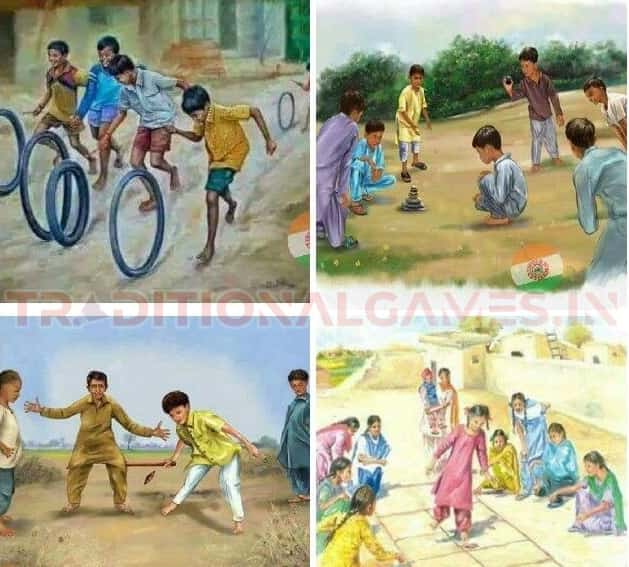India is a country with a rich cultural heritage, and traditional games have played an important role in the lives of people for centuries. These games not only provided entertainment but also helped in developing physical and mental agility. Over the years, many traditional games have disappeared, but some have survived and continue to be played by people of all ages.
In this blog, we will take a look at the history and evolution of traditional Indian games and how they have contributed to the country’s cultural heritage.
The History and Evolution of Traditional Games
India is a country that boasts of a rich cultural heritage, and traditional Indian games are an integral part of this legacy. These games have been played by people of all ages for centuries and have been passed down from generation to generation. They not only provide entertainment but also offer numerous physical and mental benefits. Over the years, many traditional games have disappeared due to various reasons, but some have survived and continue to be played by people of all ages.
Traditional Indian games can be broadly classified into indoor and outdoor games. Indoor games include board games such as Pachisi, Chess, and Snakes and Ladders, whereas outdoor games include games like Kho-Kho, Kabaddi, and Gilli Danda. These games have evolved over the years to suit modern times. For example, Kabaddi, which was traditionally played on mud fields, is now played on synthetic surfaces. Similarly, modern equipment and technology have been introduced to games like Archery, which is now an Olympic sport.

Preserving traditional Indian games is of great importance as they reflect the country’s values and beliefs. These games teach important life skills such as teamwork, problem-solving, and decision-making. Traditional Indian games are not only a source of entertainment but also an important aspect of the country’s cultural heritage. By preserving these games, we can ensure that future generations can enjoy them and learn from them. Furthermore, traditional Indian games are an essential aspect of tourism in the country, with many tourist attractions offering visitors the opportunity to play these games and learn about their history.
History of Traditional Indian Games
Traditional Indian games date back to ancient times when the country was ruled by various dynasties. These games were played by people of all ages, from children to adults, and were an essential part of their lives. Some of the oldest traditional games that are still played today include Pachisi, Chaturanga, and Moksha Patam.
How To Play Aakku Pakku Vethala Paakku Game?
Traditional Indian Games and Their Types
Traditional Indian games can be broadly classified into indoor and outdoor games. Indoor games include board games such as Pachisi, Chess, and Snakes and Ladders, whereas outdoor games include games like Kho-Kho, Kabaddi, and Gilli Danda.
Traditional Indian Games and Their Evolution
Over the years, traditional Indian games have evolved to suit modern times. For example, Kabaddi, which was traditionally played on mud fields, is now played on synthetic surfaces. Similarly, modern equipment and technology have been introduced to games like Archery, which is now an Olympic sport.
Traditional Indian Games and Their Significance
Traditional Indian games have great significance in the country’s cultural heritage. They have been passed down from generation to generation, and they reflect the country’s values and beliefs. These games teach important life skills such as teamwork, problem-solving, and decision-making.
Importance of Preserving Traditional Indian Games
Many traditional Indian games have disappeared over time, and it is essential to preserve the ones that still exist. These games are an integral part of the country’s cultural heritage, and they provide a glimpse into the past. By preserving these games, we can ensure that future generations can enjoy them and learn from them.
Statue Freeze Attack Children Game
Traditional Indian Games and Tourism
Traditional Indian games are an important aspect of tourism in the country. Tourists from all over the world come to India to experience its rich cultural heritage, and traditional games are a big part of that. Many tourist attractions in the country offer visitors the opportunity to play these games and learn about their history.
Conclusion
In conclusion, traditional Indian games have played an essential role in the country’s cultural heritage. They have survived the test of time and continue to be played by people of all ages. By preserving these games, we can ensure that future generations can enjoy them and learn from them. Traditional Indian games are not only a source of entertainment but also teach important life skills and values.
How To Play Pooparikka Varugirom Game?
